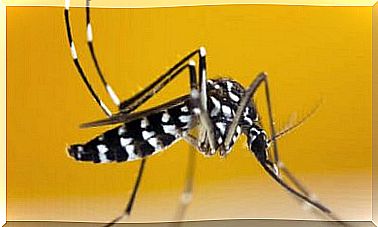The Effects Of The Sun On Your Cat’s Skin

Cats love to be in the sun and enjoy a good nap in a very hot place. Of course, owners also enjoy watching their kittens in a state of relaxation and enjoyment, but it’s essential to be aware of the sun’s effects on your cat’s fur.
Benefits of sunlight for our pets
The sun also offers benefits not only for the skin, but also for the whole body. That’s because the sun’s rays allow the existence of all life forms that inhabit our planet.
The sun plays a key role in the metabolism of living things, including our own and that of our pets.
For example, our bodies would not be able to synthesize vitamin D without the influence of solar radiation. This vitamin, also known as calciferol, is essential for calcium absorption and the formation of bone structures.
A lack of vitamin D is often responsible for osteoporosis, rickets, and other musculoskeletal disorders.
This does not mean that the sun provides vitamin D to felines, but rather allows it to be properly absorbed by the body.
All kittens should have sources of vitamin D and essential nutrients in their diet. To ensure complete and balanced nutrition for your kittens, it is best to consult a trusted veterinarian.
We also recommend reading: The Most Amazing Mass Migrations
Harmful effects of the sun on your cat’s skin
When the sun’s rays hit your cat’s skin, some of them are reflected and some are absorbed. The absorbed rays penetrate through the epidermis and are transmitted to the deeper areas of the skin.
From this, they trigger a series of biochemical reactions that interfere with cell structure and metabolism.
In moderate exposure, the effects of the sun on your cat’s skin are generally very beneficial to his health.
However, excessive exposure to solar radiation can cause serious damage to their cellular components, leaving them more vulnerable to numerous diseases.
What are the risks of excessive exposure to the effects of the sun on your cat’s skin?
Below, we’ve summarized the risks your cat is taking from overexposure to the sun.
-
burns
It’s probably the most immediate and visible sun damage to your cat’s skin. Cats can suffer superficial or deep burns, depending on the degree of damage to the epidermis and dermis.
Of course, superficial burns are more easily treated and have a better prognosis. However, deep burns are very alarming. That’s because they carry a high probability of secondary bacterial infections.
Therefore, when you notice any changes in your cat’s skin, remember to consult your veterinarian immediately.
-
solar or actinic dermatitis
The first symptoms of solar dermatitis in cats are inflammation of areas that have been exposed to the sun.
In this case, we will see that the skin is reddened as a result of the irritation. Hair loss is also often seen, which leaves the skin more exposed and sensitive.
When exposure is prolonged, we see that inflammation intensifies and redness is more noticeable. At this stage, crusts and blisters may appear on the skin, causing intense itching. If the animal itches and causes a wound, its body is more vulnerable to various infections.
We also recommend reading: How to keep pets warm in winter?
-
Skin cancer
Skin cancer is caused by the abnormal growth of malignant tumor cells. Among the possible causes of this malignant mutation, we find chronic damage to cell components due to excessive exposure to solar radiation.
Fortunately, malignant skin tumors are relatively rare in cats, but it is essential to take effective preventative measures to prevent cancer in our puppies.
Therefore, it is very important to use sunscreen for our kittens before letting them be exposed to radiation.
It must be remembered that white cats are more vulnerable to damage from excessive exposure to solar radiation. Low or no melanin makes your skin absorb more sunlight.
Consequently, your cells can be damaged more easily, which increases your risk of developing skin cancer.








